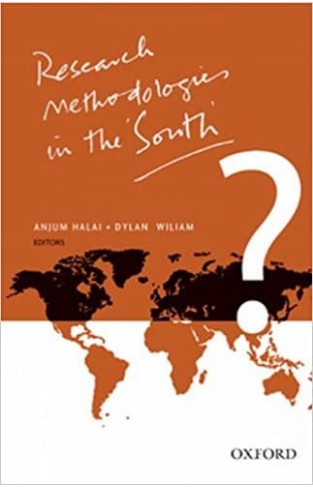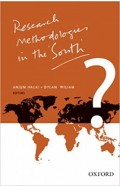Research Methodologies in the 'South'
By: Anjum Halai
-
Rs 556.50
- Rs 795.00
- 30%
You save Rs 238.50.
Due to constant currency fluctuation, prices are subject to change with or without notice.
Are there universal standards for researching education, or should different standards be employed for researching in different contexts? As more and more educational research is conducted through collaborative networks involving partners from different countries, the issue of how research should be conducted is becoming increasingly important. This is especially important in research efforts that bring together researchers from the global 'South'- countries or settings that are economically and technologically less developed, sometimes termed 'developing countries'-and the 'North'. While many of these partnerships have fostered collaborative research networks in which Northern and Southern partners participate on equal terms, including both concrete collaborative research projects and research capacity development, these collaborations have raised thorny issues about how to conduct research when researchers and participants do not speak the same language, and where thereare different notions of epistemology and ontology. This book is the first collection of essays specifically addressing the issue of whether the research methods of the 'North' are appropriate for conducting educational research in the 'South'. It brings together descriptions and critical analyses of research methodologies and methods from a range of contexts, written by experts from a range of geographical and cultural contexts, and will be useful to anyone who is involved in conducting, or supporting those engaged in, social enquiry.
Are there universal standards for researching education, or should different standards be employed for researching in different contexts? As more and more educational research is conducted through collaborative networks involving partners from different countries, the issue of how research should be conducted is becoming increasingly important. This is especially important in research efforts that bring together researchers from the global 'South'- countries or settings that are economically and technologically less developed, sometimes termed 'developing countries'-and the 'North'. While many of these partnerships have fostered collaborative research networks in which Northern and Southern partners participate on equal terms, including both concrete collaborative research projects and research capacity development, these collaborations have raised thorny issues about how to conduct research when researchers and participants do not speak the same language, and where thereare different notions of epistemology and ontology. This book is the first collection of essays specifically addressing the issue of whether the research methods of the 'North' are appropriate for conducting educational research in the 'South'. It brings together descriptions and critical analyses of research methodologies and methods from a range of contexts, written by experts from a range of geographical and cultural contexts, and will be useful to anyone who is involved in conducting, or supporting those engaged in, social enquiry.
Zubin Mehta: A Musical Journey (An Authorized Biography)
By: VOID - Bakhtiar K. Dadabhoy
Rs 525.00 Rs 1,050.00 Ex Tax :Rs 525.00
Manning Up: How the Rise of Women Has Turned Men into Boys
By: Kay Hymowitz
Rs 746.25 Rs 995.00 Ex Tax :Rs 746.25
No similar books from this author available at the moment.
No recently viewed books available at the moment.
Zubin Mehta: A Musical Journey (An Authorized Biography)
By: VOID - Bakhtiar K. Dadabhoy
Rs 525.00 Rs 1,050.00 Ex Tax :Rs 525.00













-120x187.jpg?q6)













